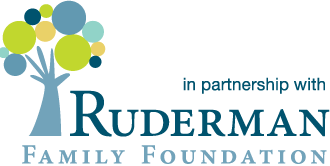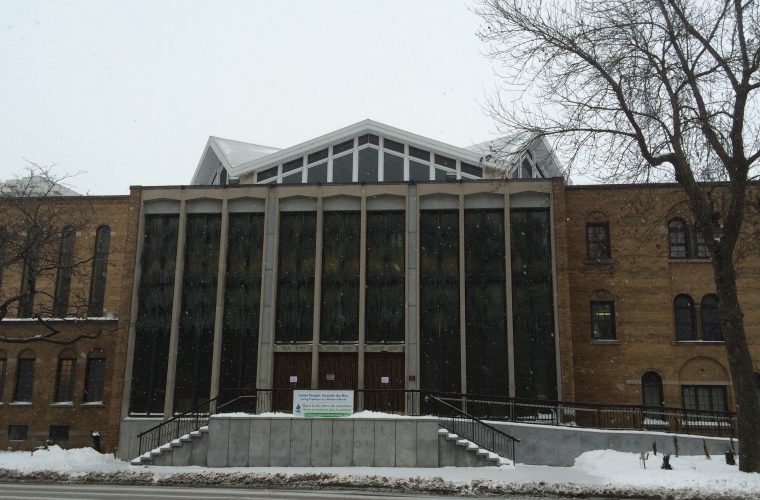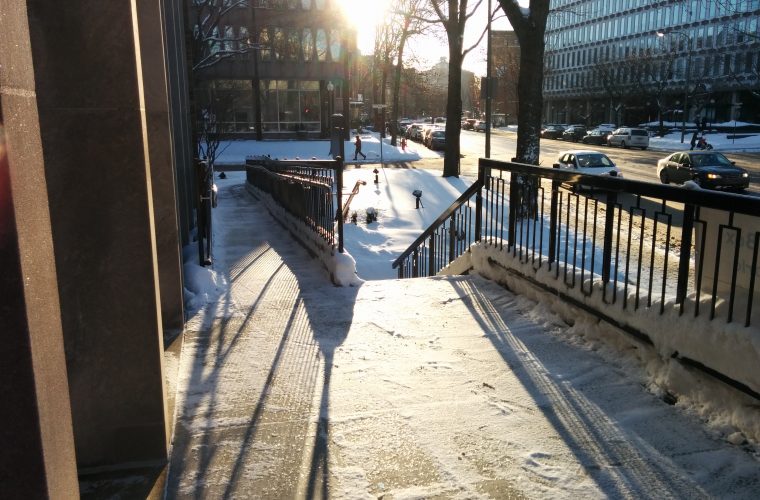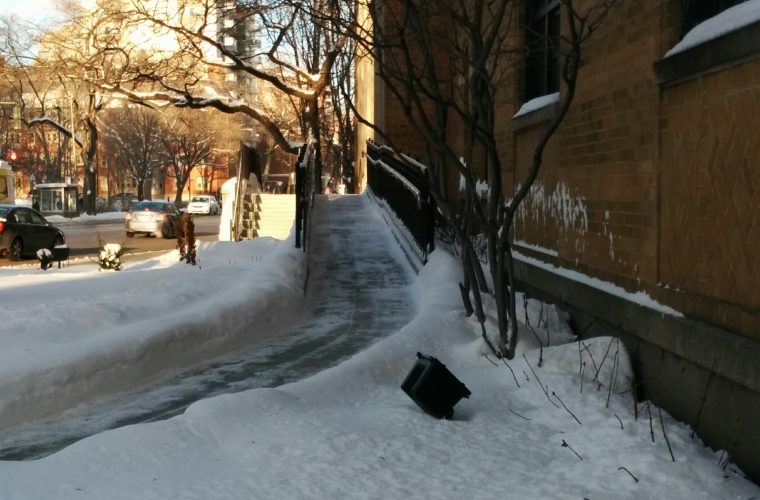Areas of Inclusion: Adults in Communal Life, Advocacy & Community Partnerships, Autism, B’nai Mitzvah, General Inclusion, Parents of Children with Disabilities, Religious School, and Worship
About the Congregation
4100 Sherbrooke Street West
Westmount, QC H3Z 1A5
Number of Congregants: 800
Contact Information
Inclusion Programming
Does this congregation have an inclusion committee?
Yes
Developing Our Program
In early 2014, a group of parents formed what they coined as the "Special Needs Working Group," (an ad-hoc sub-committee of the Education Committee), as a space where they could share their common experiences with Temple and parenting children with special needs. Various congregants with backgrounds in inclusion, education, psychology, and programming were invited to join, and did so enthusiastically. They received a grant for their "All Abilities Inclusion Project" in 2014 from the Miriam Foundation. One of their first mandates was to hire a "Special Needs Coordinator" in order to facilitate the committee's plans for outreach, the identification of barriers, and promotion of participation. The Special Needs Coordinator, (now known as an Inclusion Specialist), was hired in December 2014. Since then, the committee has been actively working with the Inclusion Specialist on identifying needs, community outreach, and staff training programs.
Program Development Links
Number of people involved in the effort: 800
Involving People with Disabilities
People with disabilities have been included in many layers of our All-Abilities Inclusion Program. Rachel Desjourdy, Inclusion Specialist, is herself a woman with a disability. Parents of children with disabilities are a main and active component of our Special Needs Working Group. All students of Torah School, (including children with disabilities), gave their input for the design of the "Tree of Peace Room." Rachel works with one Temple member on the autism spectrum on a project that allows him to actively participate at Temple - he reads stories to the children in Junior Torah School. During our 'Lunch and Learn' in February 2015, one of our key panelists was a Temple teen who spoke of his experiences as a member with a disability. There are many other instances of people with disabilities being involved with the actions of the Special Needs Working Group. The group tends to be project-oriented, and thus different people are involved in different projects as they're organized and set forth.
Funding This Effort
This effort was funded with a grant from the Miriam Foundation.
Spreading Awareness About Our Work
One of our main purposes has been to vary the 'target' population of our outreach initiatives. The initial launch of the project was held alongside a lunch and learn event in February 2015, to coincide with Jewish Disabilities Awareness Month. The event was promoted in the greater Montreal community as well as to the Temple community. Parents of children in Torah School were encouraged to attend. Along with that, the Inclusion Specialist has prepared a series of targeted workshops that speak to specific populations at Temple. Rachel Desjourdy led an Inclusion training for the ushers prior to the High Holy Days, and facilitated a meeting on inclusion with the professional staff of the synagogue, as well as a follow-up meeting with certain Temple staff evaluating the access and inclusivity of the High Holy Days.
The Montreal Jewish community is quite varied, and within our own synagogue one sees a range of ages, abilities, and family situations. By varying our approach we hope to educate and create awareness among all members of Temple. An example of this was the Inclusion Shabbat on June 19th 2015, during which Rabbi Greenspan's sermon addressed the topic of Inclusion, and the service was complemented by ASL interpretation, and the congregation learned how to sign the Sh'ma.
At the moment, our community awareness has mainly come from press coverage and word of mouth. We have contacted various news organizations and let them know who we are and what we're about, and have had articles run about our synagogue. Our committee members are well connected, and network actively. Letting people know that we're here and that we're an inclusive community is vital to our success. We have plans in place later this year to partner with McGill University's Office for Students with Disabilities as part of our community outreach initiatives. Thanks to generous donations from some of our members, we were able to host Pamela Schuller as our guest lecturer in February 2016, in honor of Jewish Disabilities Awareness and Inclusion Month, which was advertised to the greater community.
Process & Sharing
Marketing Documents Indicating Our Commitment to Inclusion
Evidence of Successful Inclusion Efforts
- See the following member testimonial:
"Dear Rabbi Greenspan,
I am very grateful to the temple community for accepting and embracing my son, who has autism. From the preparation for his bar mitzvah, to his participation in classes, services, holidays and the youth group, my son has enjoyed the enthusiastic support and love from rabbis, teachers, families, and friends. He feels at home at temple and looks forward to attending every week.
For me it especially important that the community has room for my son to serve others, as this helps him to see himself as competent and capable. When he reads stories to the junior Torah school students, it is one of the highlights of both of our weeks.
Thank you all!
Cynthia Davis
Evidentiary Links
Evidentiary Documents
Evidence of Changing Attitudes
We feel that it may be too soon to tell, however, there are certain markers that have indicated attitudinal shifts since we've started. First of all, was the shift in language, from "Special Needs Coordinator" to "Inclusion Specialist." Second was the willingness of the professional staff, lay leadership, and the Board of Trustees to participate in various inclusion workshops. As our members continue to be exposed to the theme of inclusion, and as people with disabilities realize they are welcome and wanted at Temple, we expect attitudes and misconceptions to continue to change.
How We're Using and Sharing the Disabilities Inclusion Learning Center
The Inclusion Specialist is charged with keeping up to date with all the webinars and resources available on the Disabilities Inclusion Learning Center. She is then able to act as the 'dispatcher,' helping the appropriate staff and lay leaders connect with workshops relevant to their area of expertise.
Future Inclusion Efforts
As we continue in our inclusion endeavors, we hope to forge additional community partnerships and conduct outreach to Jewish families who may feel disconnected from the Montreal Jewish community, or that it is inaccessible to them. We will continue to provide internal training on inclusion to staff and congregants, and hope to become a model of inclusion for other local congregations. Through a continuous evaluation process, we will develop inclusive policies for Temple's programming and practices. For example, we're examining accessibility during the High Holy Days and developing policies that will ease access and accommodations for people with disabilities. We hope to widen the scope of our services, through the application for additional funding that will allow us to create programming specific to people with disabilities and their friends/family. One of the events we have planned, and hope to continue, is inviting a guest speaker in the month of February for Jewish Disabilities Awareness and Inclusion Month. We look forward to continuing to gather momentum and furthering our inclusion efforts!




